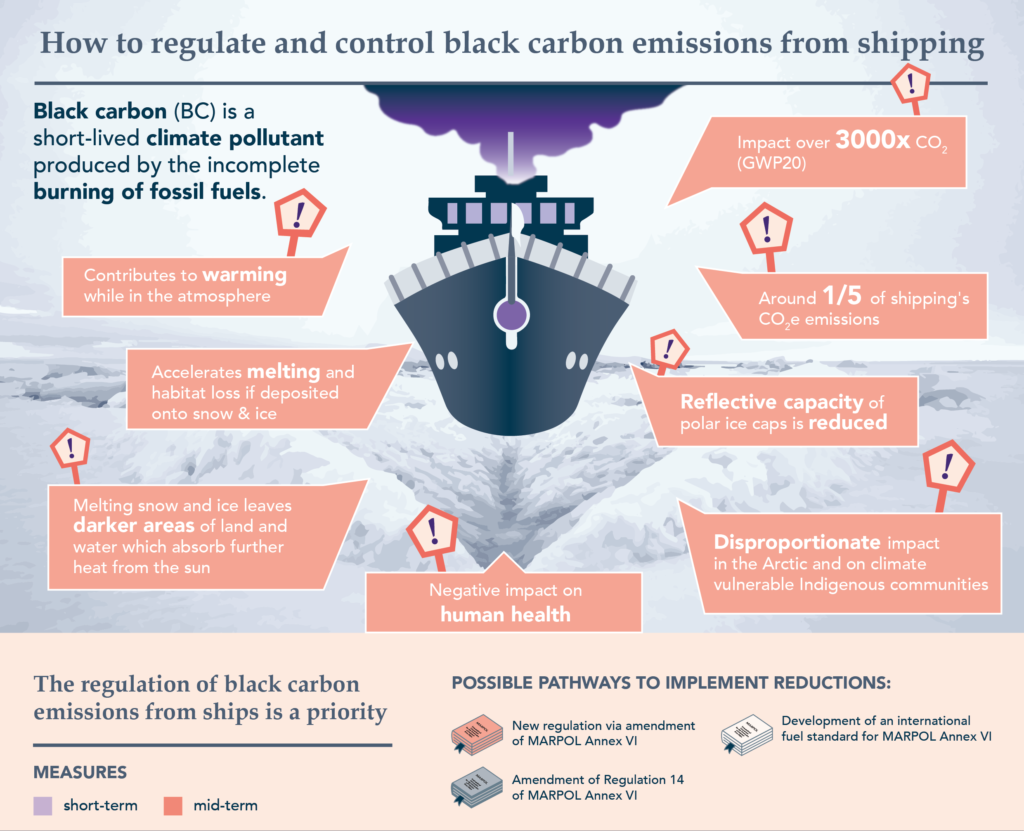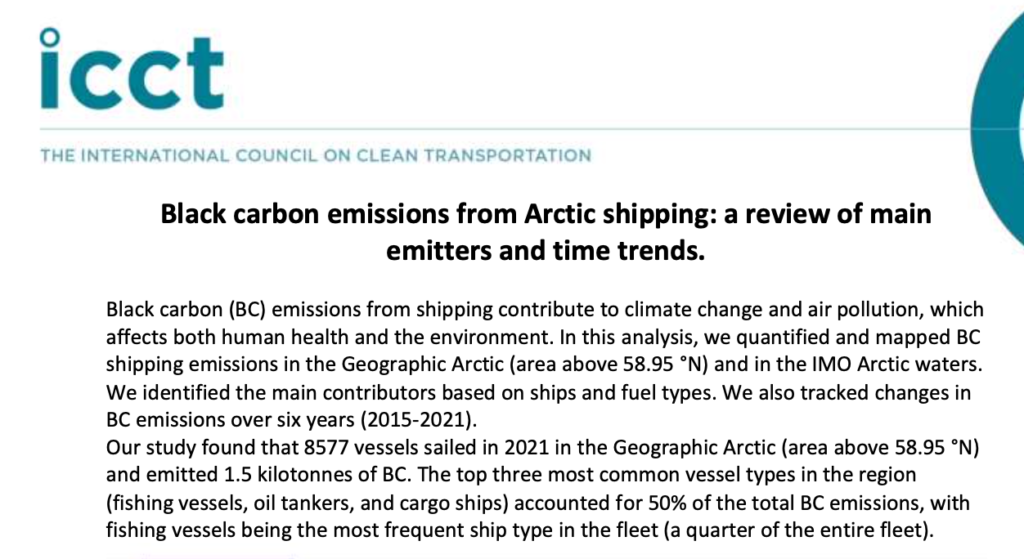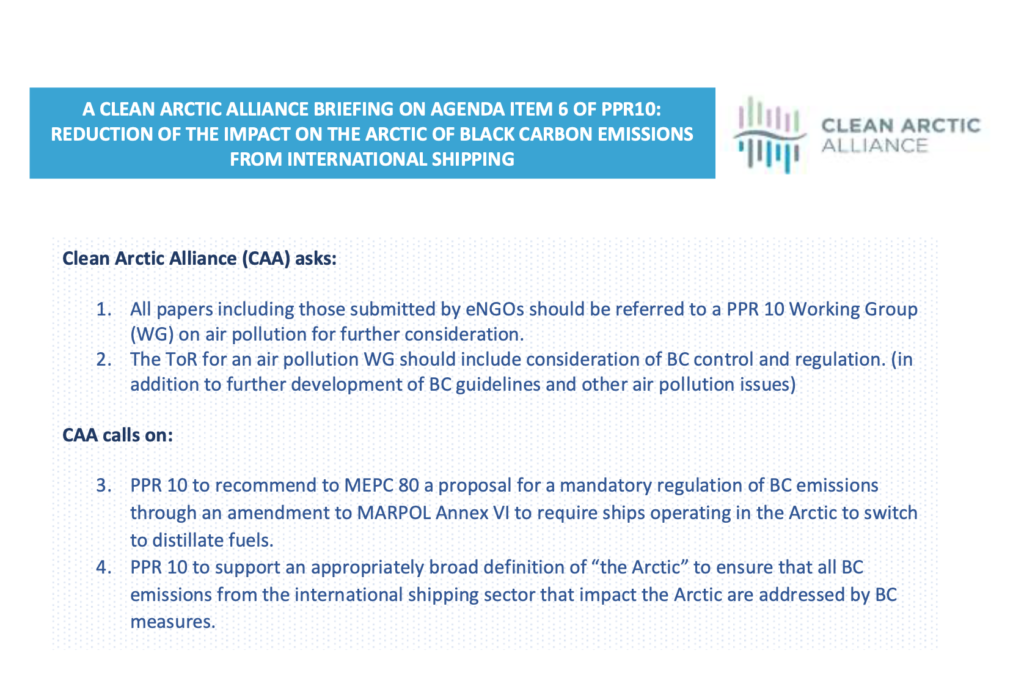Call for for Switch to Cleaner Shipping Fuel To Cut Arctic Black Carbon Emissions

As a meeting of the IMO’s Pollution Prevention and Response committee opens today, the Clean Arctic Alliance calls for radical reduction in impact of black carbon emissions from shipping on Arctic sea and glacier ice, by putting in place a compulsory requirement for ships across the whole Arctic to use cleaner fuels by switching to distillate fuels.
Black carbon emissions from Arctic shipping: a review of main emitters and time trends

Black carbon (BC) emissions from shipping contribute to climate change and air pollution, which affects both human health and the environment. In this analysis, we quantified and mapped BC shipping emissions in the Geographic Arctic (area above 58.95 °N) and in the IMO Arctic waters.
Clean Arctic Alliance Briefing on Agenda Item 6 of PPR10: Reduction of the impact on the Arctic of Black Carbon Emissions from International Shipping

PPR 10 to recommend to MEPC 80 a proposal for a mandatory regulation of BC emissions through an amendment to MARPOL Annex VI to require ships operating in the Arctic to switch to distillate fuels.

